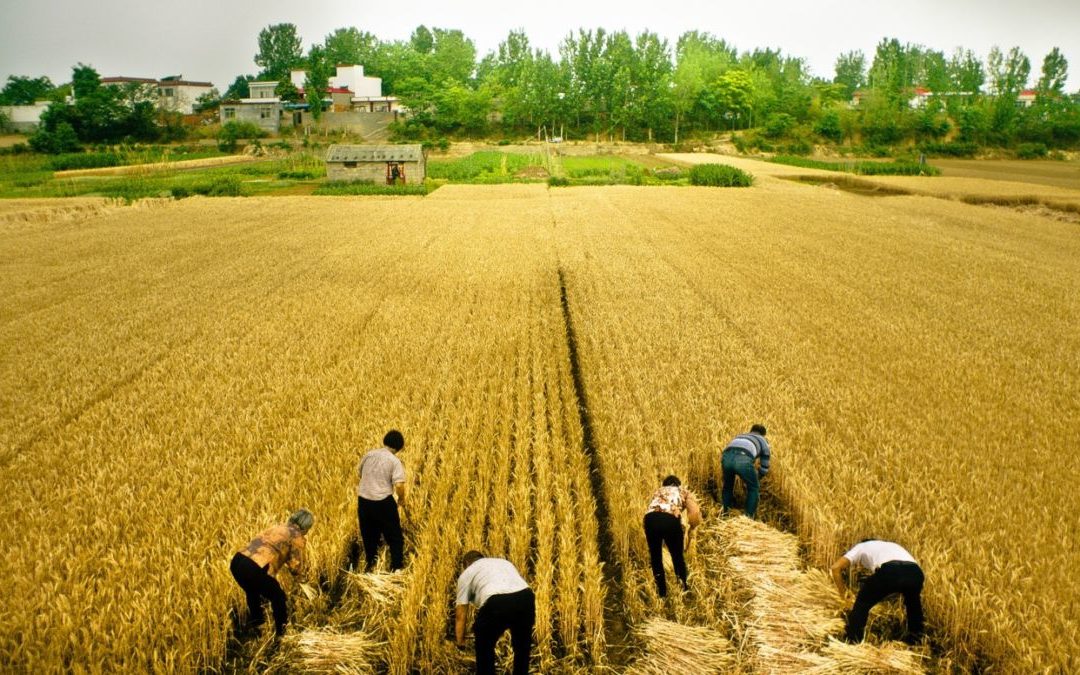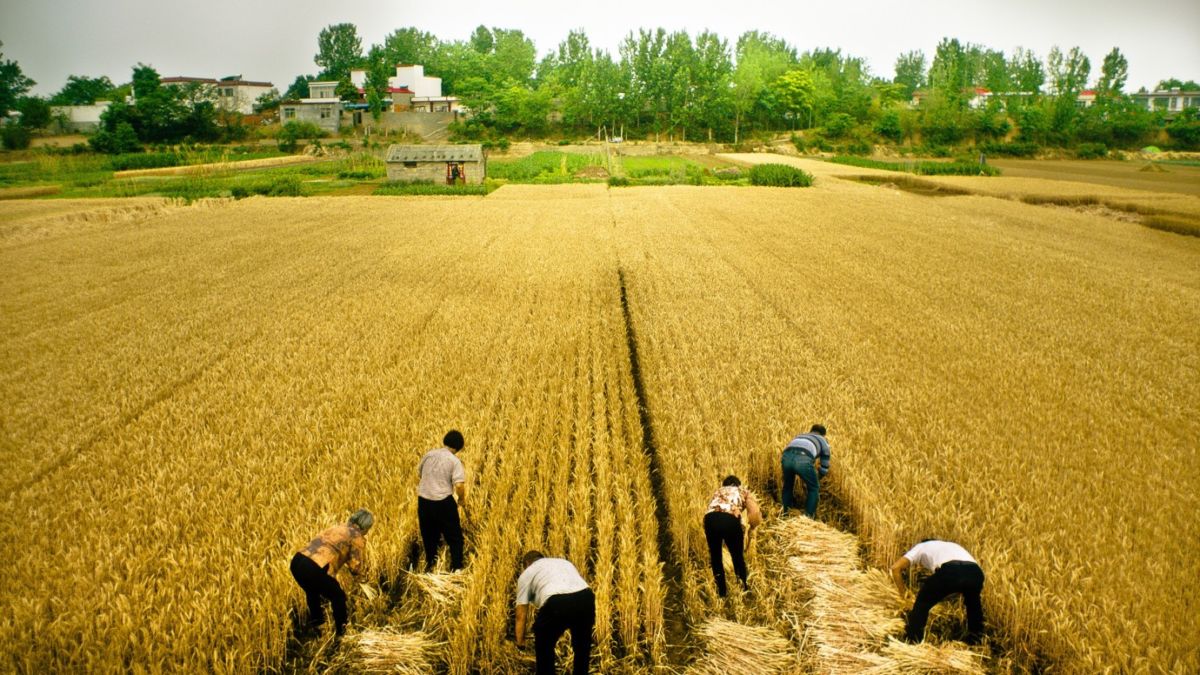Fenyang village in the Shanxi province holds a special place in the heart of Jia Zhang-ke. Born in the village, it’s the setting for both his debut effort Xiao Wu and Mountains May Depart. Now he returns once again to the region — where he has also set up a film festival — for Swimming Out Till The Sea Turns Blue, his first documentary in ten years.
Fenyang was renowned during the 50s for its robust economic production, thanks in large part to successful collectivisation efforts led by the writer activist Ma Fang. As a result, it holds a special place in Chinese culture. To stress this point, Zhang-ke contrasts archival footage from 1979 and today of a large-scale mural showing Fenyang’s importance to Chinese identity, although the contents of the mural have crucially changed.
The place and its people have also proved a key inspiration for Chinese writers, three of which are interviewed here. They are Jia Pingwa, Yu Hua and Liang Hong. Different in ages, experience and temperament, they form a multi-generational portrait of rural China as it progressed through sweeping changes.
Returning to talk at an inaugural literary festival in the region, Zhang-ke allows them to speak at length, moving between humorous anecdotes, painful memories and opinions about rural life. The result is a fascinating portrait of writing under communism, as well offering key insights into the esteemed Chinese director himself.
Zhang-ke is China’s most pre-eminent chronicler, his (mostly fiction) explorations of how Chinese traditions come into conflict with rapid modernity. Here Zhang-ke contrasts harvesting wheat by hand — as families did for centuries — with the combine harvester, which is able to do the work of ten people. With more and more Chinese people moving from rural areas to the big cities — as demonstrated by a great anecdote by Yu Hua — there is a sense that this pastoral idyll is being lost to rapid urbanisation.
This is the third documentary in Zhang-ke’s trilogy of the arts, following Dong (about painter Liu Xiaodong) and Useless (about fashion designer Ma Ke). It has a casual, free-flowing feel to it, structured by 18 chapters — with titles like “Eating” or “Sister” — that follow little internal logic. There is a sense he is letting the place speak for itself, perhaps a little hesitant to proffer his own views on the region. Any editorialising seems to come from the soundtrack. Featuring the work of Shostakovich, Beethoven and Rimsky-Korsakov, their intermittent appearances at times undercutting the serenity of his pastoral vision.
Due to these modest ambitions, as well as a few playful missteps in direction, it never reaches the heights of his classics such as The World or Ash is Purest White. Nonetheless, for fans of Zhang-ke, Swimming Out Until The Sea Turns Blue offers insights into the inspiration behind his work, found both in Chinese literature and the beautiful countryside surrounding Fenyang. While I wouldn’t really recommend it for anyone starting out with Zhang-ke’s work, it’s necessary viewing for those wanting to know more about the iconic auteur.
Read all of our Berlinale reviews here.
Some of the coverage you find on Cultured Vultures contains affiliate links, which provide us with small commissions based on purchases made from visiting our site.


